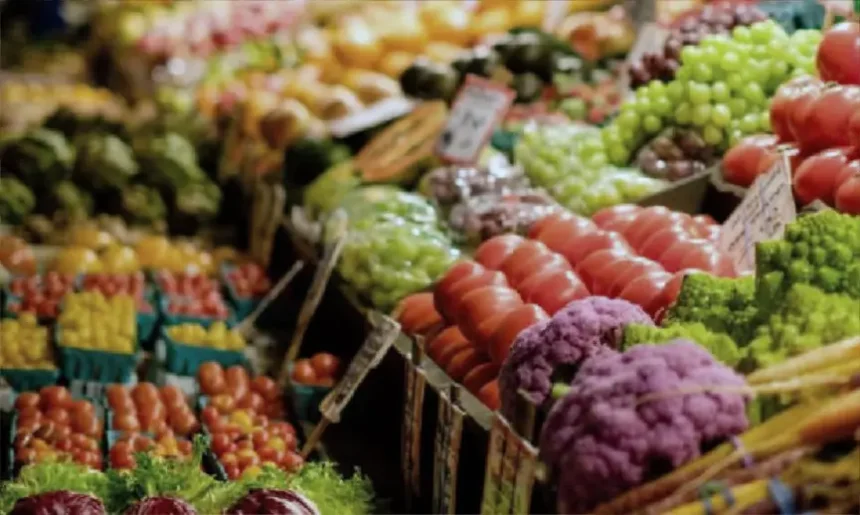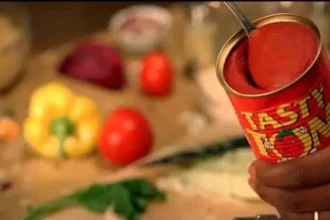For the first time in what feels like forever, Ghanaians are seeing a little green shoot of hope at the market. After months of making painful choices at the markets, new data shows the prices of several essential food items are actually going down.
It’s not a dramatic crash, but a cautious, welcome dip. According to the latest figures from the Ghana Statistical Service (GSS), some key staples recorded real, month-on-month price decreases in June. This isn’t just a slowing of inflation; it’s the first tangible sign that the much-discussed macroeconomic improvements are translating into less painful shopping trips for ordinary people.
The most significant drop came in an item crucial for countless homes and small businesses: charcoal. Its price fell by a substantial 4.2%, offering direct relief for those who rely on it for cooking. But the good news extended to the dinner plate, too.
The price of imported rice, a fundamental part of the Ghanaian diet, declined by 1.3%. Smoked herring (Amane), a key source of protein, became 1.5% cheaper. Maize, a critical ingredient for both human consumption and animal feed, saw a 1.1% drop. Smaller but still notable reductions were recorded for vegetable oil (down 0.6%), onions (down 0.2%), and corn dough and flour (down 0.5%).
A Sigh of Relief at the Market
At Accra’s bustling Madina Market, the mood among both shoppers and sellers is cautiously optimistic.
We interviewed a few people at the market, and here is what they had to say.
“I noticed it last week,” said Akua Serwah, a mother of three shopping for the week’s groceries. “The bag of rice I bought is still expensive, but it’s not more expensive than last month. For the first time, I could buy a little extra onion and tomatoes without worrying too much. It feels like a small victory.”
For traders like Kwame, who sell grains and cereals, the price drop has a direct impact on his sales.
“When prices were shooting up every day, people would buy only a cup or two at a time. Now that things are stable and even coming down a little, they are more confident. They are buying in small bowls again, even full bags. It helps my business move faster.”
Why Are Prices Finally Falling?
This positive trend didn’t come out of nowhere. It’s the result of a confluence of factors that economists have been cautiously watching.
- The Cedi’s Steadying Pulse: After a period of intense volatility, the Ghanaian cedi has shown remarkable stability against major currencies like the US dollar in recent months. This is crucial because Ghana imports a significant amount of its foodstuffs, including rice and vegetable oil. A stronger cedi makes these imports cheaper.
- The Inflation Domino Effect: Ghana’s overall inflation has been on a steady decline, falling to a multi-year low. The Bank of Ghana’s tight monetary policy, including historically high interest rates, is finally curbing demand and cooling down the economy.
- Improved Domestic Harvests: Following a challenging period, recent harvests for staples like maize have been more stable. Improved seasonal rains and government initiatives to support local farmers are beginning to bear fruit, increasing local supply and reducing reliance on expensive imports.
While the trend is positive, economists and market analysts are urging caution, calling this relief “fragile.”
“This is undoubtedly good news for consumers and a positive sign for the economy,” said Dr. Priscilla Twumasi Baffour, a Senior Lecturer in Economics at the University of Ghana. “However, we must be cautious. This recovery is susceptible to external shocks. A sudden spike in global oil prices, unexpected poor harvests due to weather, or any renewed pressure on the cedi could quickly reverse these gains.”
The government acknowledges the fragility. In a recent briefing, Finance Minister Dr. Amin Adam stated that maintaining this momentum requires “unwavering discipline and a continued focus on the implementation of our economic recovery programme,” including the $3 billion IMF loan package.
What Does It Mean for Your Wallet?
For the average household, this isn’t about suddenly having excess cash. It’s about breathing room. It means a family’s fixed income can stretch a little further, potentially allowing for a more diverse diet or the ability to save a few cedis for another day. It acts as an indirect, small pay raise.
The question on everyone’s mind now is: Is this the start of a lasting trend or a temporary respite? For now, Ghanaians are taking the win, one slightly cheaper bag of rice at a time.
Have you felt the difference at your local market? Share your experience with us in the comments below.









